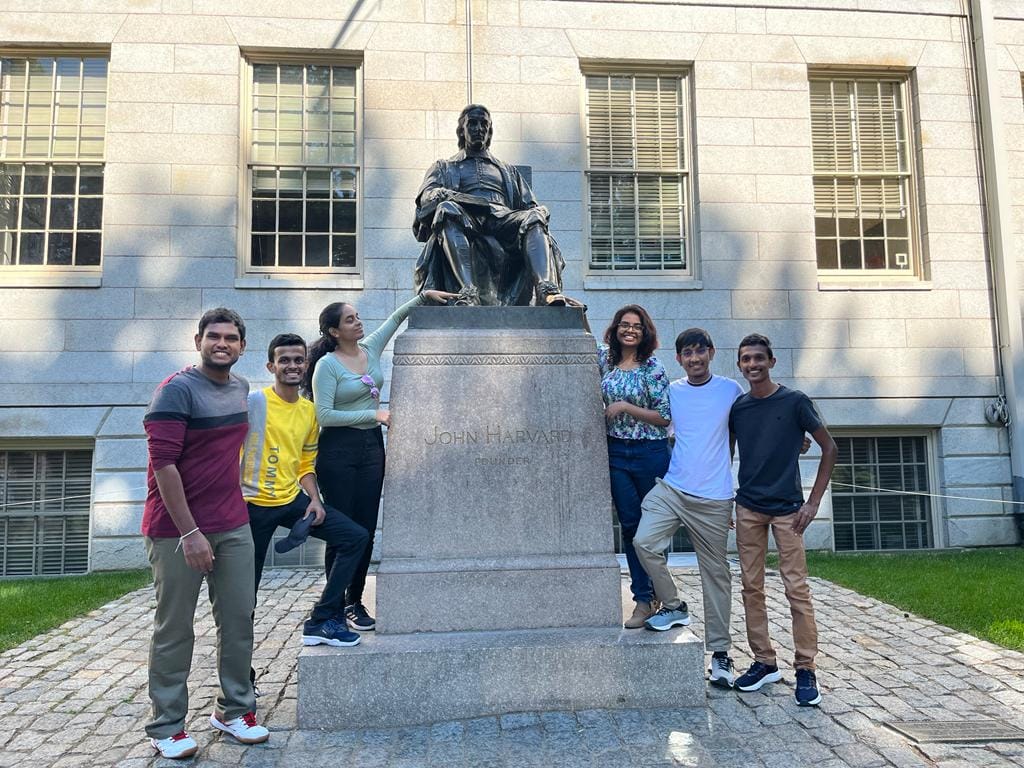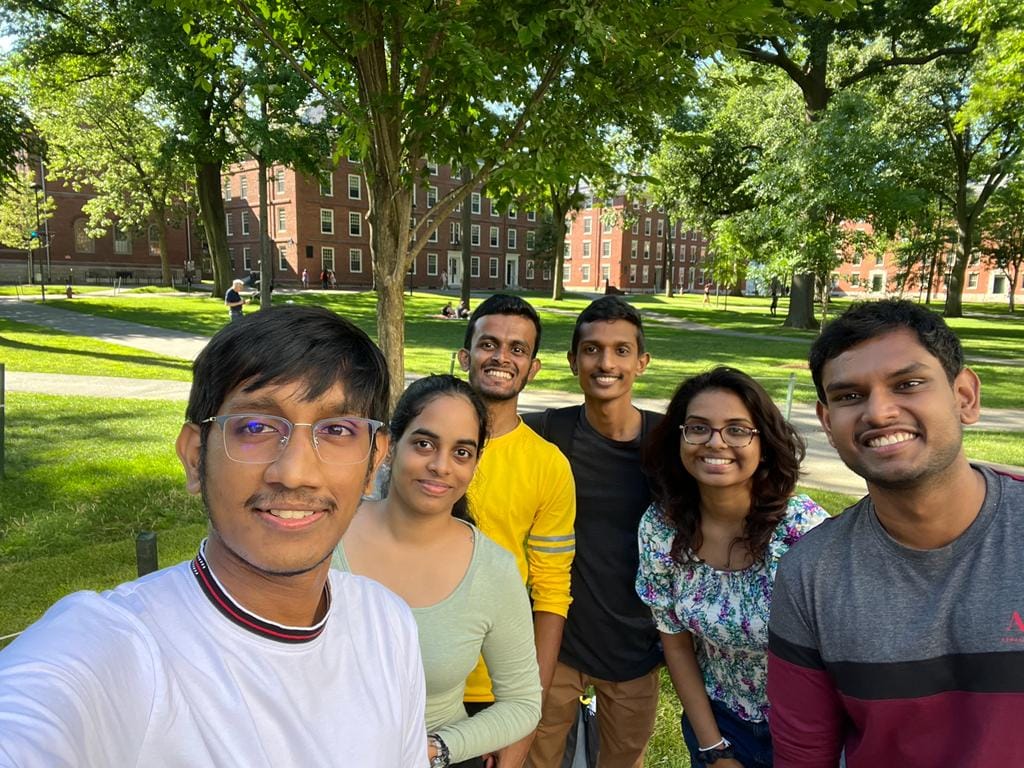Championing Sustainability at SPARK Challenge 2024: Top Innovations in Agri-Voltaics, Energy Efficiency, and More
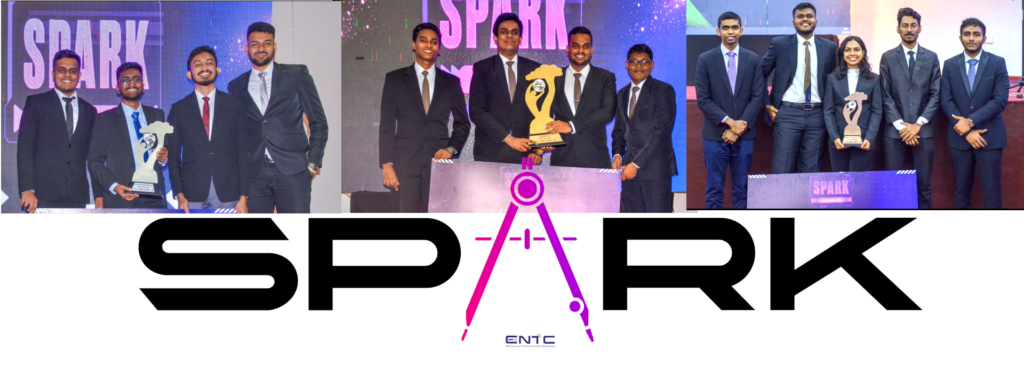
Intriguing innovations in agri-voltic systems, farm animal health, industrial energy efficiency, and simple measuring for health management convinced the judges as the most innovative products and ideas at the SPARK Challenge 2024. Spark Challenge is an innovation competition that encourages the entrants to develop unique, socially and environmentally responsible solutions by applying technology to extend and preserve communities and ecosystems. It aims to deliver solutions that safeguard our planet’s limited resources and mitigate the harmful effects of human existence. The grand finale was on 28 September 2028. The team that proposed a system for making a solar farm and agriculture co-exist emerged as the champions.
This winning project integrates solar energy production with sustainable agriculture to address Sri Lanka’s energy and agricultural challenges. By combining solar panels with high-yield crop cultivation, it maximizes land use, enhances crop yields, and minimizes water waste. Equipped with IoT-based monitoring, predictive maintenance, and smart drip irrigation, it ensures efficient solar output and healthy crops. This agro-plan model, guided by GIS data, recommends optimal crop choices and solar panel layouts for specific areas. This solution promotes energy independence, job creation, and food security while reducing carbon emissions and reliance on crude oil, supporting sustainable development goals.
The product that became the first runners up is a smart solution for poultry farms, using machine learning, cloud integration, and thermal imaging to monitor poultry health and behavior in real-time. It detects early disease signs and tracks animal performance, enabling timely action to reduce losses and improve productivity. Sensor data on temperature, air quality, and movement is analyzed in the cloud, with insights accessible through a mobile app to support sustainable, climate-aligned farming. An IoT-based energy monitoring solution for small and large enterprises won third place. It addresses energy efficiency and cost management challenges. It features real-time data acquisition, predictive maintenance, and AI-driven insights for energy optimization. With a modular design, it reduces energy costs, streamlines management, and aligns with sustainable development goals, supporting clean energy, responsible consumption, and climate action.
Looking ahead, the SPARK Challenge 2024 highlights the potential of technology-driven solutions to tackle some of today’s most pressing environmental and social challenges. The innovative projects showcased—spanning sustainable agriculture, animal health management, and industrial energy efficiency—offer a glimpse into a future where resource conservation and eco-friendly practices are the norm. As these pioneering ideas gain traction, they pave the way for transformative changes that can enhance food security, reduce carbon footprints, and promote sustainable development across diverse sectors, fostering a more resilient and sustainable world for future generations.
Read MoreENTC Team Wins the RISC-V based Design & Verification Challenge at DVCon
Team BitWeavers from the Department of Electronic and Telecommunication Engineering of the University of Moratuwa was able to become the winner of the global design contest “C-DAC’s VEGA microprocessor (RISC-V) based Design & Verification Challenge” organized by the DVCon India 2024 Design and Verification Conference. The team consists of Supun Dasantha Kuruppu, Anuki Pasqual, and Dakshina Tharindu from the Department of Electronic and Telecommunication Engineering.
This contest for university students aimed to encourage innovation in digital system design and verification. Over the span of 5 months, the teams were required to design, verify, and implement a custom AI accelerator to accelerate a vision transformer model for a malware detection application. The accelerator would then be interfaced with the VEGA AS1061 CPU indigenously developed by C-DAC (Center for Development of Advanced Computing, India) and implemented on a Genesys 2 FPGA board. The contest was divided into 3 stages, with 20 teams out of 120 being selected for Stage 2A and 9 teams being selected for Stage 2B.
Team BitWeavers comprising Anuki Pasqual, Dakshina Tharindu, and Supun Kuruppu was able to successfully implement and run the full system and achieve an overall 3x reduction in inference latency compared to the pure CPU execution, surpassing the performance of all other teams. They were the only team from Sri Lanka to reach the top 3 and were given the opportunity to attend the DVCon India 2024 conference held in Bangalore, India on the 18th and 19th of September 2024 and demonstrate their accelerator. They received praise from both the organizing committee and the audience for their impressive performance.
The Department of Electronic and Telecommunication Engineering has always been a pioneer in electronics innovation in Sri Lanka. The team attributed their success to the comprehensive digital system design pathway taught at the department, which gave them the theoretical and practical knowledge that was instrumental in successfully building the accelerator.
The team also thanked the DVCon India team for providing a massive learning experience through this contest, assisting them in the implementation process, and giving them the opportunity to connect with experts from the industry and academia through the conference.
In 2023, ENTC became the 1st runners up.
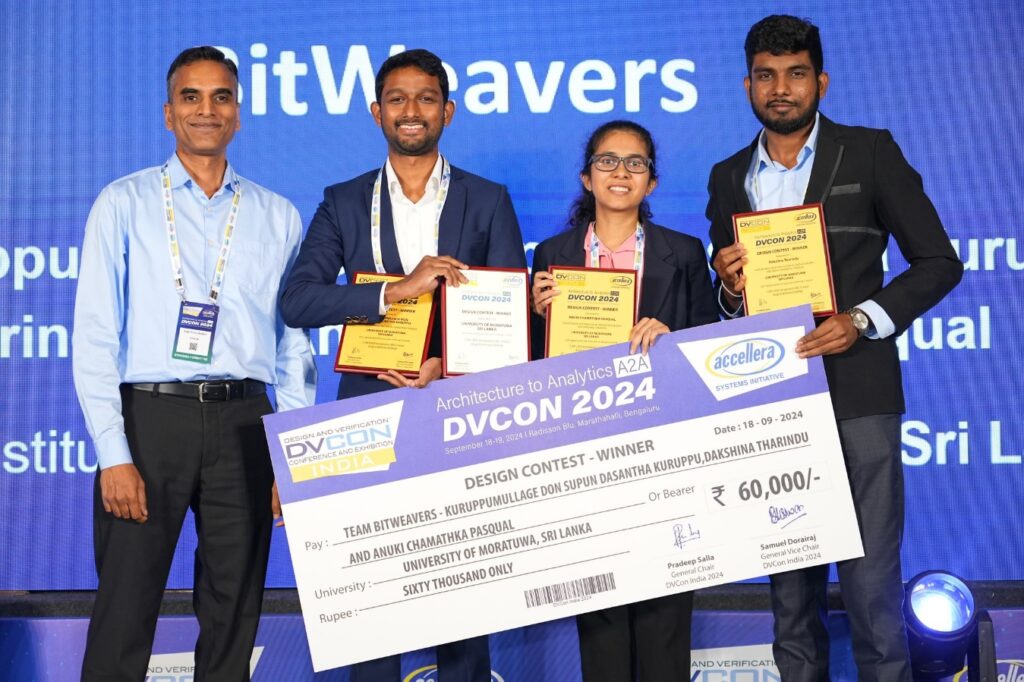
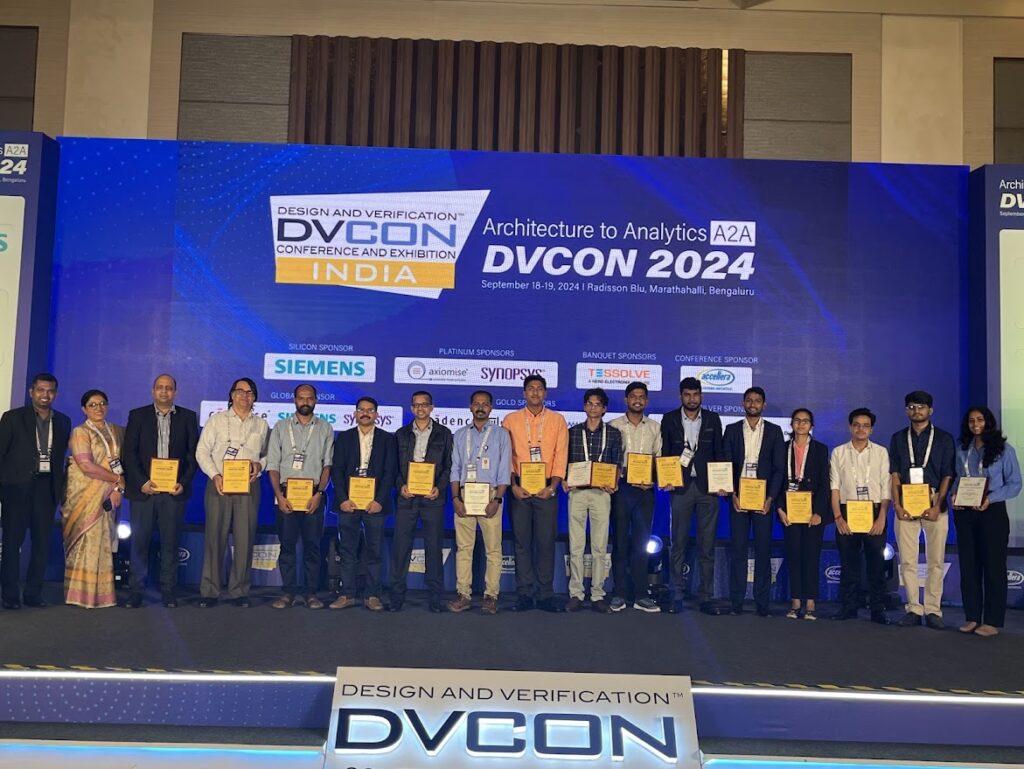
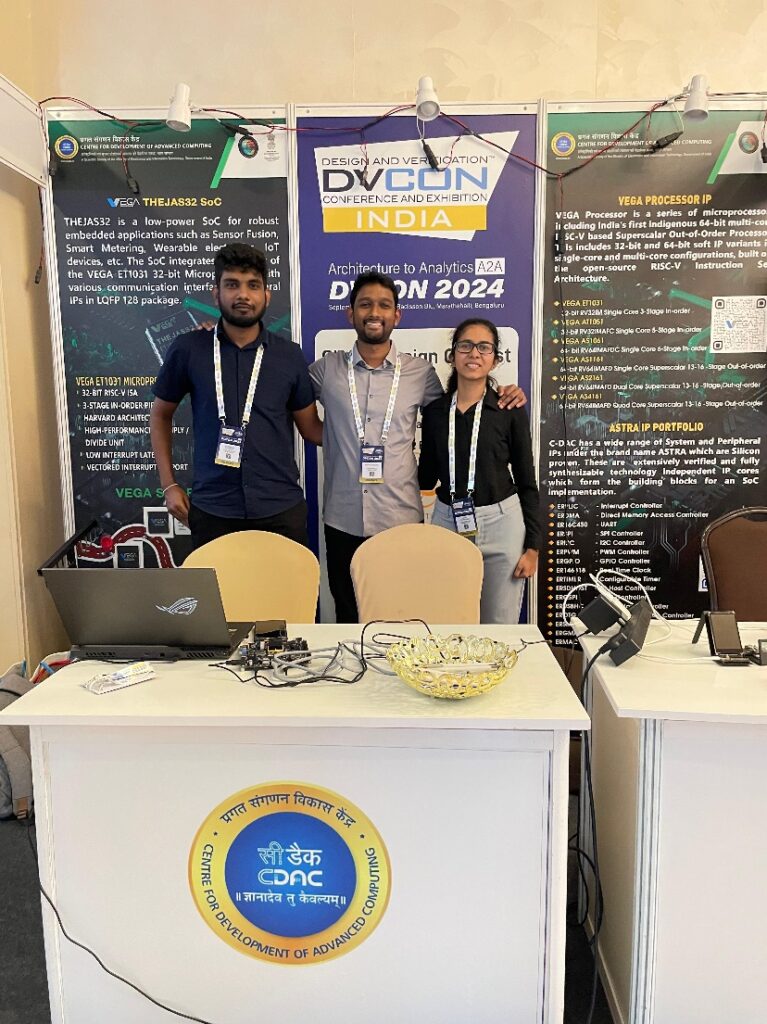
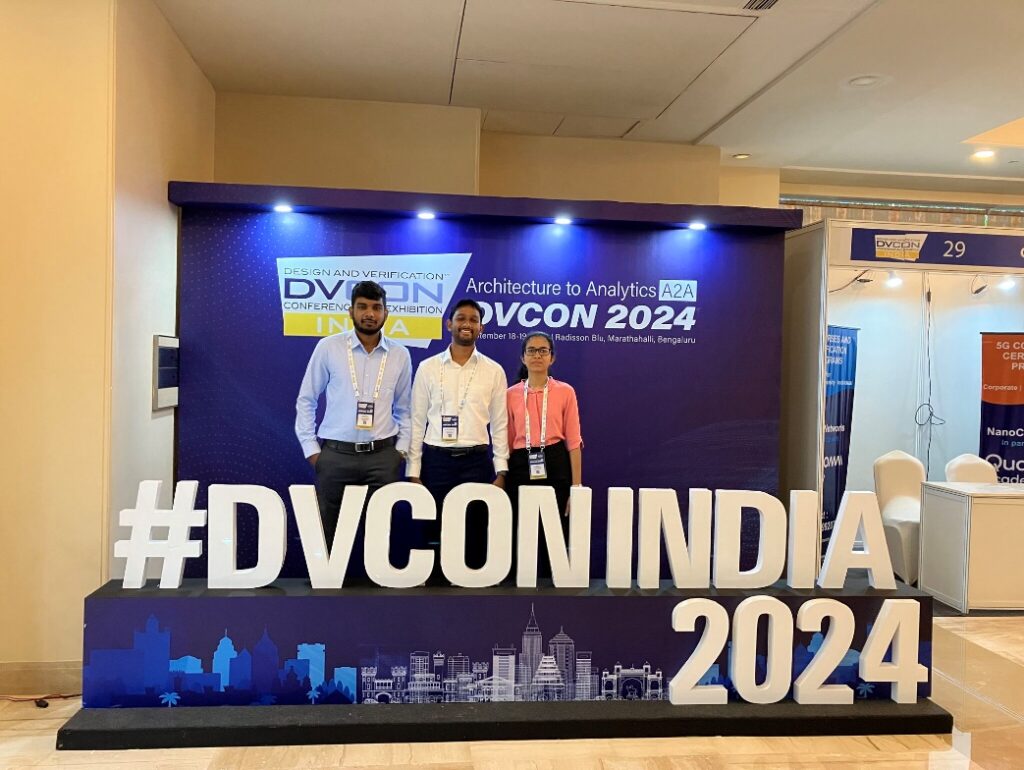
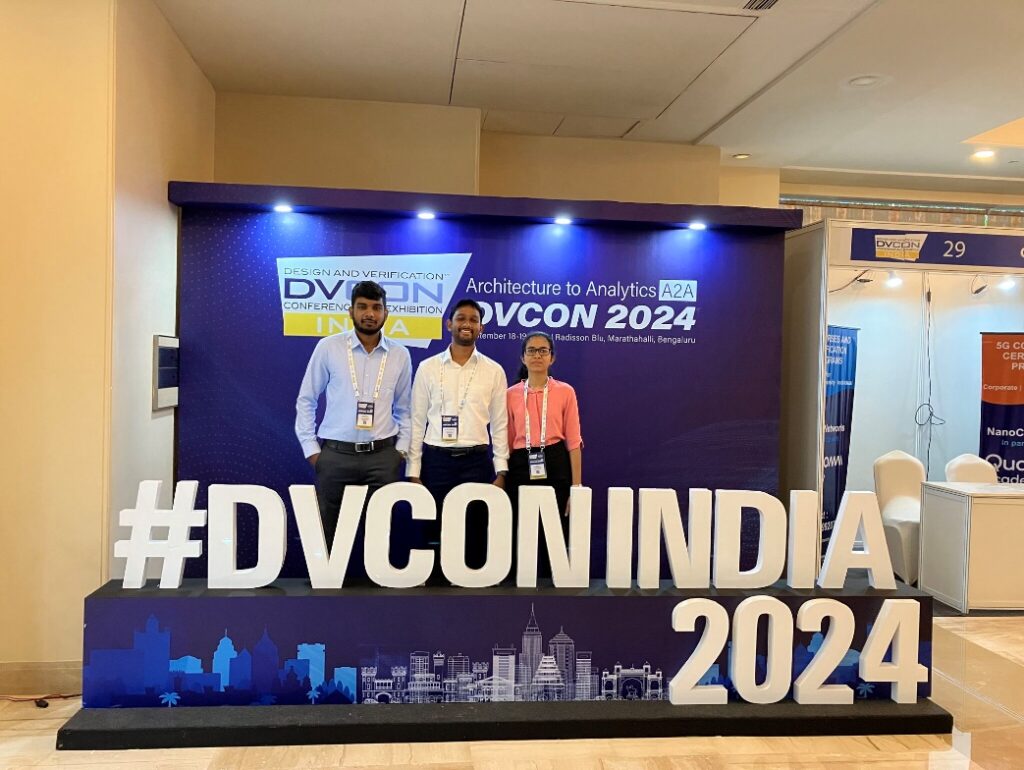
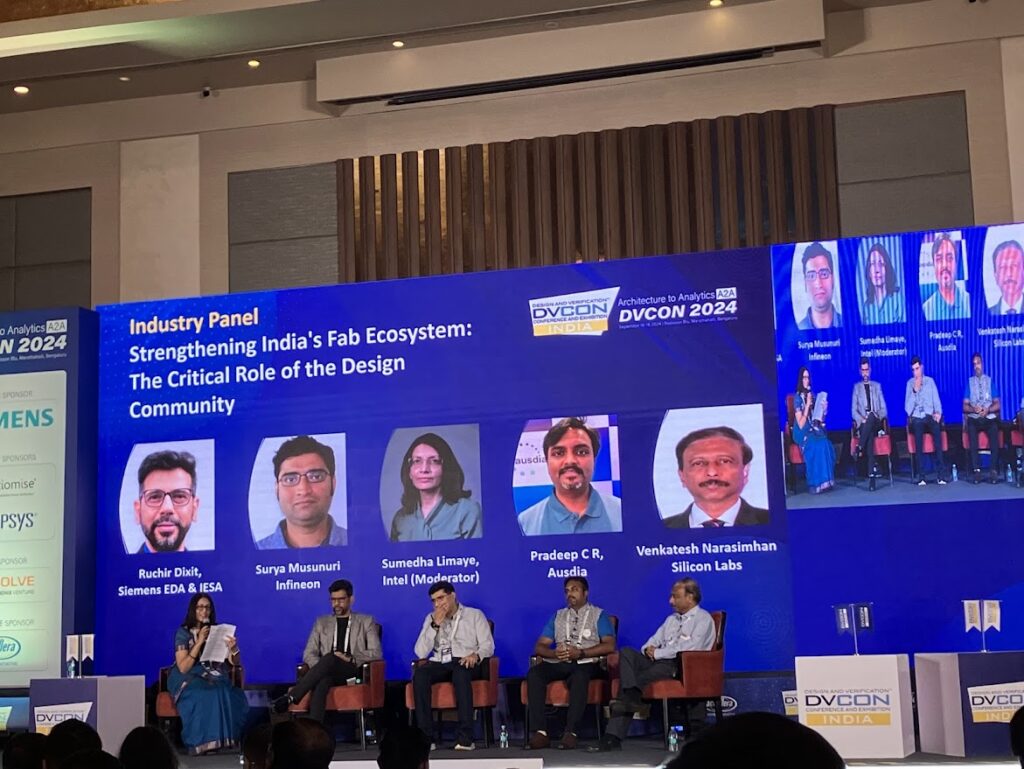
Department of Electronic and Telecommunication Engineering of the University of Moratuwa Wins First Runners-up in RISC-V Processor Design & Verification Challenge 2023
The Department of Electronic and Telecommunication Engineering of the University of Moratuwa has added another feather to its cap by winning the **first runners-up** place in the RISC-V Processor Design & Verification Challenge held in Bangalore, India on September 18th and 19th, 2023¹.
The competition was organized by DVCon India and was aimed at promoting innovation and creativity in processor design and verification. The teams were required to design and verify a RISC-V processor that could meet the performance and power requirements of modern computing systems. The winning team from the Department of Electronic and Telecommunication Engineering, comprising Janindu Leelananda and Thishakya Bandara, demonstrated their technical prowess by developing a processor that could deliver high performance while consuming minimal power.
The University of Moratuwa has always been at the forefront of innovation and research in electronics, telecommunications, and allied disciplines in engineering. The success of the teams from the Department of Electronic and Telecommunication Engineering is a testament to the quality of education and research offered by the university².
Congratulations to Janindu Leelananda, Thishakya Bandara, and the entire team from the Department of Electronic and Telecommunication Engineering for their outstanding performance in the competition!
For more information about the contest, please visit [DVCon India’s website](https://dvcon-india.org/invite-for-global-design-contest/).
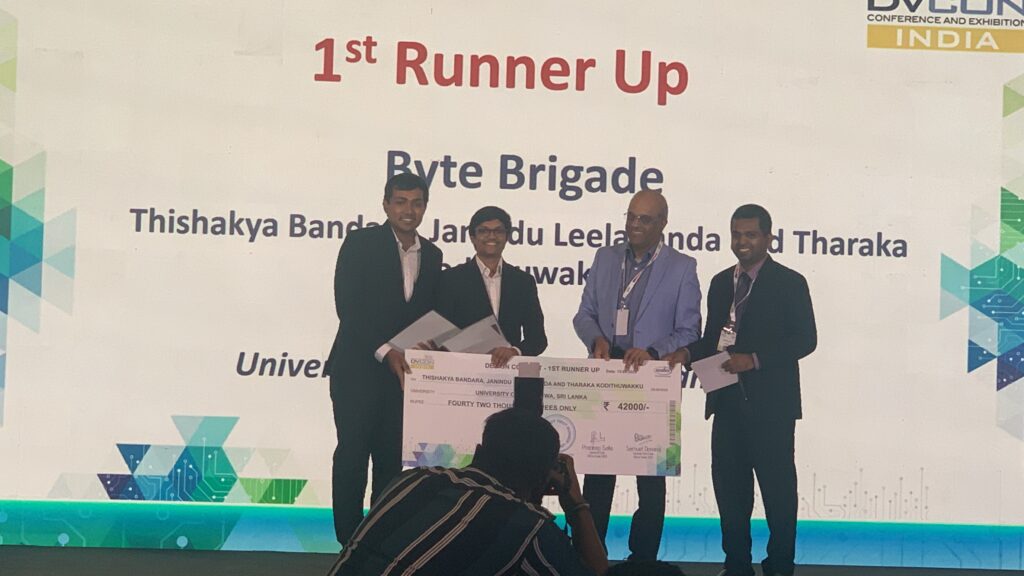
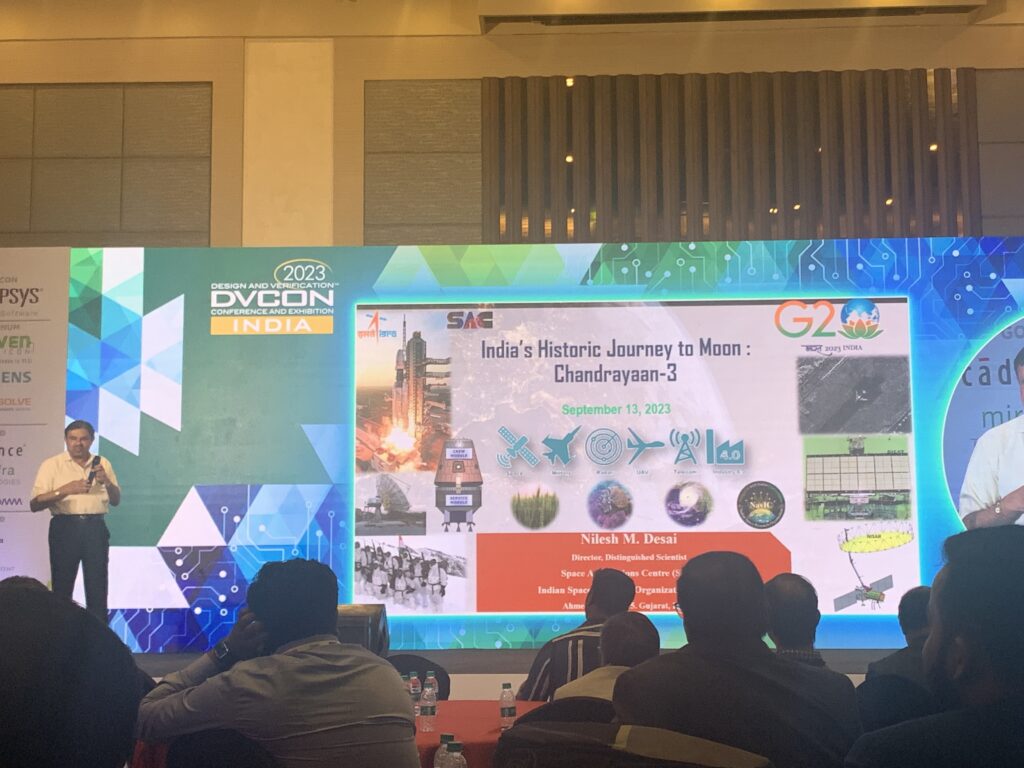
Department of Electronic and Telecommunication Engineering Wins Top Places in SLIIT’s RoboFest 2023
The Department of Electronic and Telecommunication Engineering of the University of Moratuwa has won laurels in the recently concluded robot competition organized by Sri Lanka Institute of Information Technology (SLIIT). The teams representing the department secured first and second place in the competition held on 24th and 25th September 2023.
The competition was a platform for students to showcase their technical skills and creativity in designing and building robots that could perform various tasks. The teams from the Department of Electronic and Telecommunication Engineering demonstrated their expertise in robotics by developing robots that could navigate through obstacles, pick up objects, and perform other complex tasks with ease.
The University of Moratuwa has always been at the forefront of innovation and research in electronics, telecommunications, and allied disciplines in engineering. The success of the teams from the Department of Electronic and Telecommunication Engineering is a testament to the quality of education and research offered by the university.
Congratulations to the winning teams from the Department of Electronic and Telecommunication Engineering for their outstanding performance in the competition!
: https://www.sliit.lk/annual-events/robofest/ : https://ent.uom.lk/
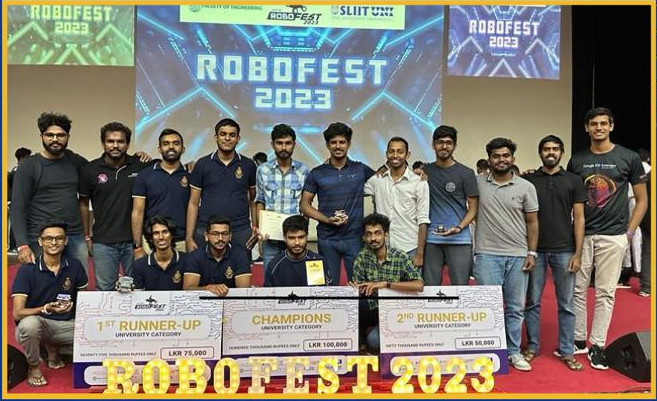
Spark Challenge Crowns Champions After Electrifying Grand Finale!
The Department of Electronic and Telecommunication Engineering at the University of Moratuwa buzzed excitedly on June 7th, 2023, as the Spark Challenge 2022/23 held its much-anticipated pitching Session. Teams brimming with innovative ideas battled it out, leaving the judges with a tough decision.
Five teams were chosen to advance to the Grand Finale following the session, marking the culmination of nearly a year of brainstorming and development. At the finale, which was held on the 11th of June 2023 at the Civil Auditorium, the top five competitors presented their final pitches. After an exciting final round, the winners were invited onto the stage. Team Spectro, who proposed a solution to the energy crisis where biological processes of green algae could be used to produce hydrogen power, emerged as the second runner-up of the challenge. Then the first runner-up award went to the team Techstatic, who implemented a product which had the capability of warning the farmers about the fertilizing requirements after analyzing the soil condition. Then, finally, the winner was the Team Pathfinders, who came up with a solution for picking up the right balance of chemical composition for different crops.

A true engineer must engage in professional-level projects that address real problems the world faces. The SPARK challenge will reward individuals and groups that create unique, innovative, socially, and environmentally responsible solutions to bring about significant positive transformative impact on society, industry and the wider environment. We had many students getting engaged with electronic-telecom projects over a period of one year under this challenge.
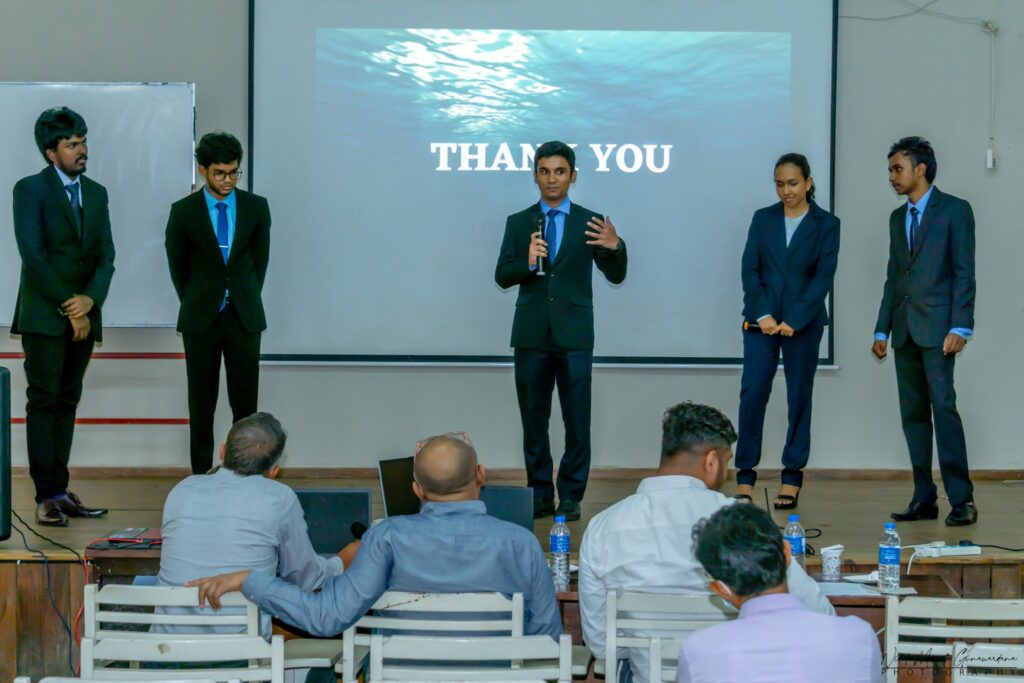
Congratulations to all the participants who poured their hearts into the competition! The Spark Challenge continues to be a breeding ground for Sri Lanka’s brightest minds, fostering solutions for a sustainable future. SPARK challenge will continue with another episode in 2024.
Read MoreConvocation Award Winners 2022
The general convocation of the University of Moratuwa was held on 20th and 21st December, 2022, where graduates were presented to the Chancellor, Vidyajothi Prof. K. K. Y. W. Perera.
There were 16 graduates who followed the Bachelor of Science Honors in Biomedical Engineering degree and 105 who followed the Bachelor of Science Honors in Electronic and Telecommunication Engineering degree. Fifty nine students out of 115 intake 2017 students obtained first class honors. Amaya Dharmasiri won the prestigious Gold Medal for the Most Outstanding Graduate of the University. Deepana Ishtaweera won the Gold Medal for the Best Academic Performance of the University and the Gold Medal for the Most Outstanding Graduate of the Faculty of Engineering. He also won the Electronic and Telecommunication Engineering Gold Medal. Vinith Kugathasan won the Biomedical Engineering gold medal.
The department congratulates the graduates and winners of medals.
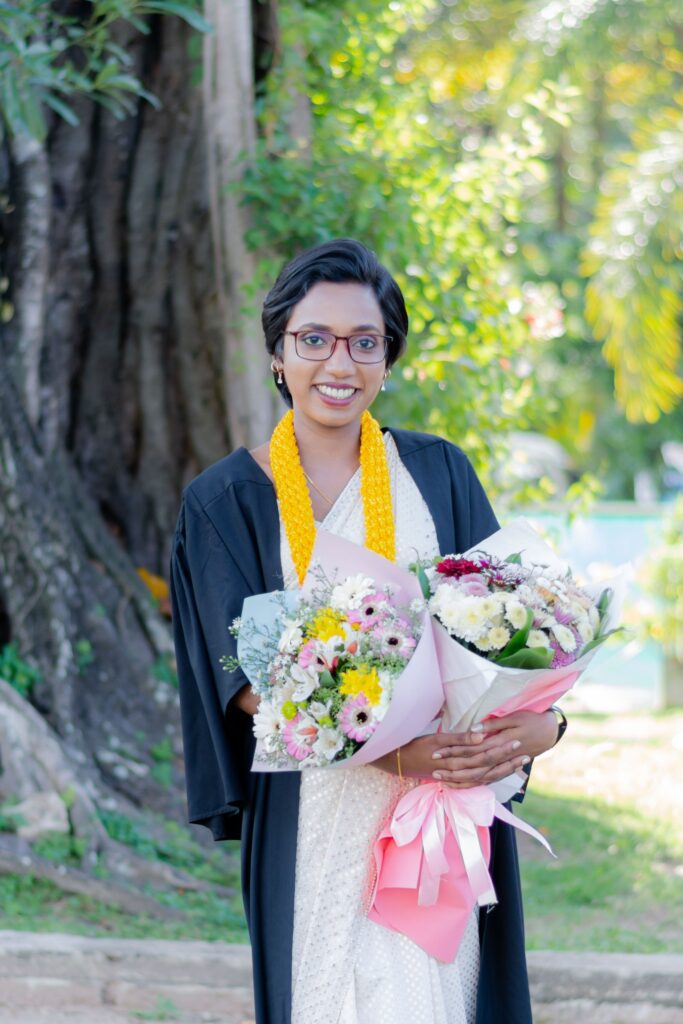
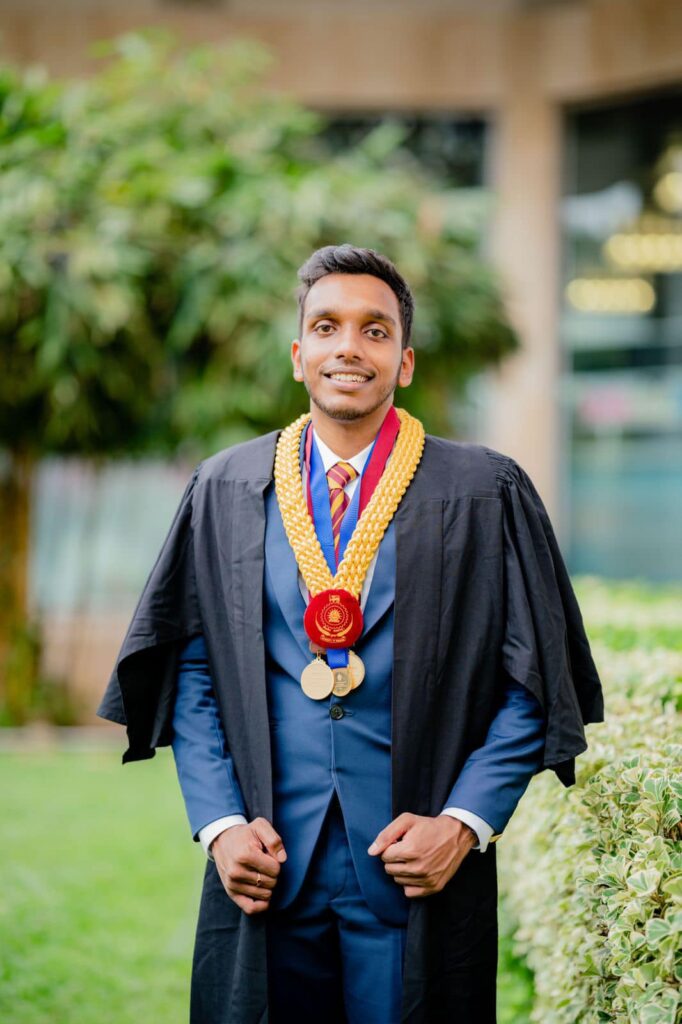
Team CircuitBreakers of ENTC Wins the IEEE Region 10 Robotics Competition
The Department of Electronic and Telecommunication Engineering at the University of Moratuwa is proud to announce the success of Team CircuitBreakers at the IEEE Region 10 Robotics Competition. The competition, which was held on 17 and 18 December 2022 at the Faculty of Engineering at Chulalongkorn University in Bangkok, Thailand, focused on the theme of “Robotics for Healthcare.”
Team CircuitBreakers, which consists of Shalutha Rajapakshe, Dilanka Wickramasinghe, Sahan Gurusinghe, and Deepana Ishtaweera, was mentored by Mr. Bhanuka Silva and supervised by Dr. Peshala Jayasekara. The team developed a collaborative quadcopter and hexapod robot system for disaster response missions, in which the quadcopter surveys and maps out the disaster environment while detecting victims, and the ground hexapod robot autonomously navigates to deliver medical packs and teleconference with victims.
The project was self-funded, with additional support from CSIRO Data 61 in Australia. Team CircuitBreakers emerged as the winner of the competition, beating out other teams from across the region.
The main objective of the competition was to raise awareness among young IEEE members about the importance of technology in providing solutions to real-world problems and to encourage creativity and innovation. Team CircuitBreakers’ groundbreaking project exemplifies this goal, using cutting-edge robotics technology to address the critical issue of disaster response.
The Department of Electronic and Telecommunication Engineering at the University of Moratuwa is proud of Team CircuitBreakers’ achievement and looks forward to seeing their continued success in the field of robotics.
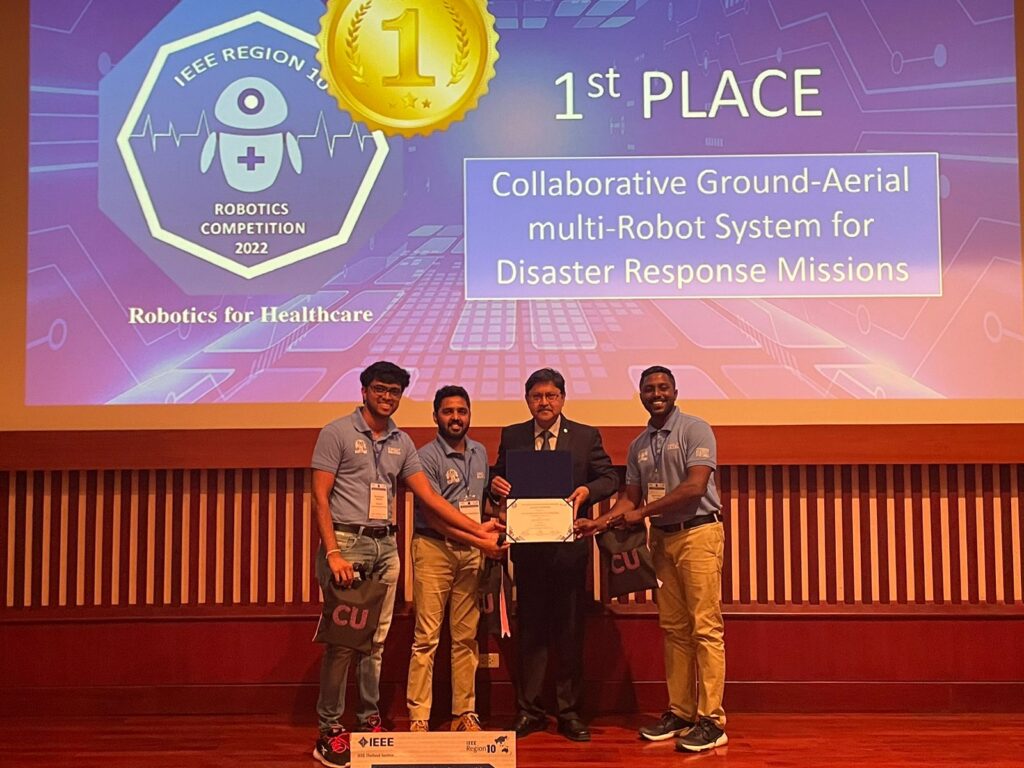
Semester 2 Engineering Design Project Demonstrations
The Engineering Design Project module is a creative and enjoyable module offered by the Department of Electronics and Telecommunication Engineering at the University of Moratuwa. The new curricular—both electronic and telecommunication engineering and biomedical engineering—feature this new compulsory course module called Engineering Design Project in semester 2. The aim of this module is to provide a holistic view of the processes leading to design and manufacturing in electronic, telecommunication and biomedical engineering. The module trains the students on the use modularity and abstraction in solving engineering problems, applying basic engineering design principles, using design tools for electronic product prototyping, identifying various manufacturing processes involved in electronic product manufacture, designing a product prototype to comply with given technical specifications, and analyzing the performance and manufacturability of the developed prototype. This is the very start of the journey of engineering product design and manufacturing.
In this module four members were formed into teams and each team had to come up with a marketable electronic-related product that gives a solution to a prevailing problem in the society, they have to do marketing, PCB design, coding, enclosure design and all the stuff related to product manufacturing. There are a total of 30 groups (26 electronic and telecom groups and 4 biomedical groups) each focused on a specific field. This is a small description of selected products from those 30 products.


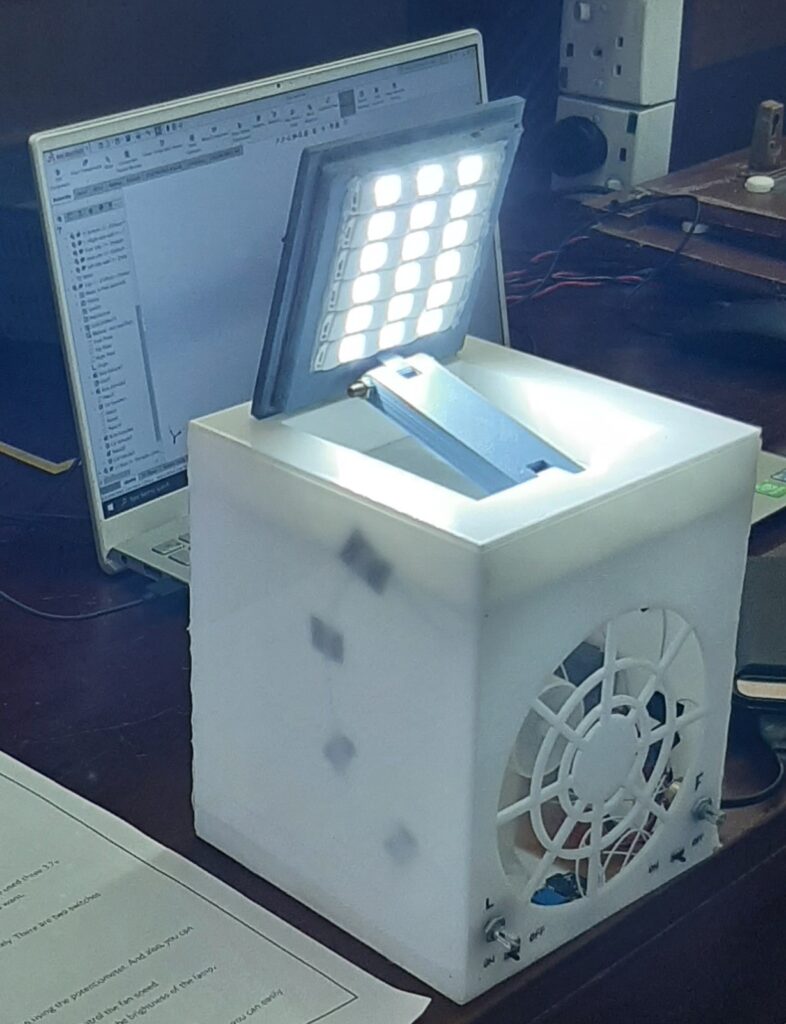
There was also a device that can indicate the remaining gas level of a LP gas cylinder. It is designed to help people monitor and manage their gas usage more efficiently. It will continuously measure and calculate the remaining gas percentage and display it on the mobile app, along with other analytics about gas usage. There were many more other exciting and innovative products that have design and created by ENTC undergraduates. Congratulate to all the teams who complete there project successfully.
Read MoreNBQSA 2022 – National ICT Awards
The final year project titled “Road Sign, Traffic Light and Static Object Detection for Self-Driving” won the Student Research Project of the Year Award and the Bronze Award for Tertiary Students Projects (Technology) at the National ICT Awards – NBQSA 2022. The project has also been nominated to APICTA (Asia Pacific ICT Alliance) Awards 2022 which will be held in Islamabad, Pakistan from 7th to 11th December 2022.
The National Best Quality Software Awards (NBQSA), which is held by the British Computer Society for the past 24 years, provides recognition to outstanding achievements of individuals and organizations in Sri Lanka in the ICT domain. The Tertiary Students Projects (Technology) Award targets the best technical solutions proposed and implemented by undergraduates while the Student Research Project of the Year Award identifies the undergraduate project with the highest research impact.
The award winning project is focused on real time detection of traffic signs, traffic lights, lanes and road markings in a resource constrained environment. Three deep learning based detection frameworks have been developed to cater this requirement and the trained detection models have been optimized using TensorRT and integrated together to deploy as a complete static object detection system on an embedded system. In addition, two benchmark datasets have been created, one for traffic signs and traffic lights, and the other for road markings in the Sri Lankan domain. The research contributions of the project have been published as three papers in IEEE ICMLA 2021, IEEE/CVF WACV 2022 and IEEE IV Symposium 2022.
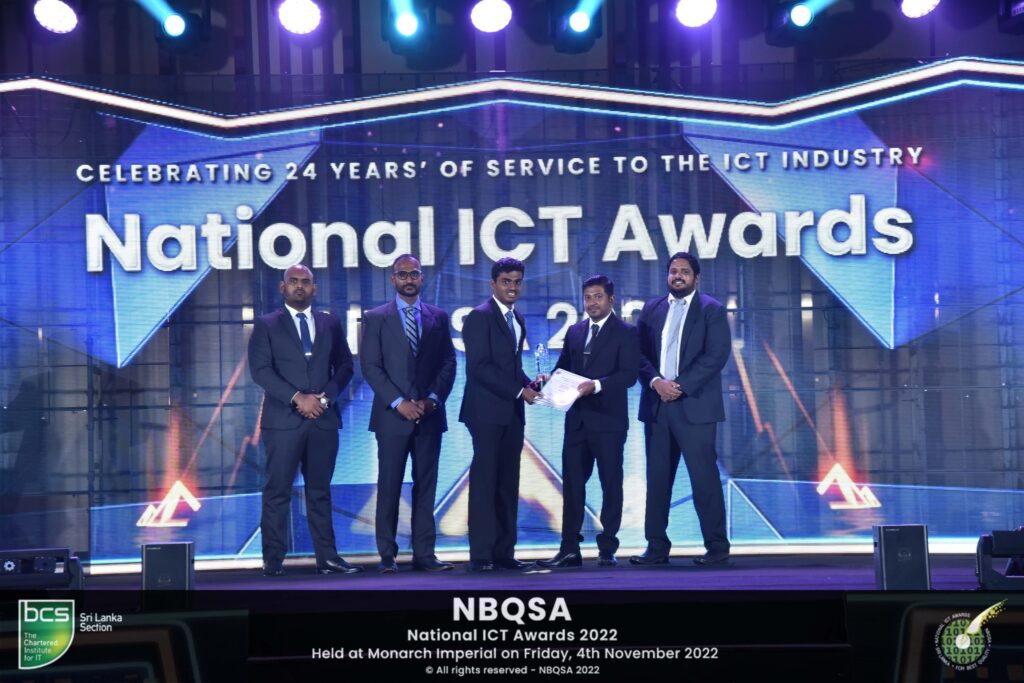
Six ENTC Graduates Join Harvard as Post Baccalaureate Research Fellows to Work on Computational Imaging and Computational Biology
Six students in the graduating class Jathurshan Pradeepkumar, Kithmini Herath, Mithunjha Anandakumar, Ramith Hettiarachchi, Udith Haputhanthri, and Hasindu Kariyawasam, joined Faculty of Arts and Sciences at Harvard University as Post Baccalaureate Research Fellows to Work on Computational Imaging and Computational Biology.
Under the computational imaging areas, they will be particularly working on a new microscopy design framework named, differentiable microscopy which is a new concept introduced by the Harvard laboratory, Wadduwage lab. Under computational biology, they will be working on problems related to protein folding and protein design with SoLab.
